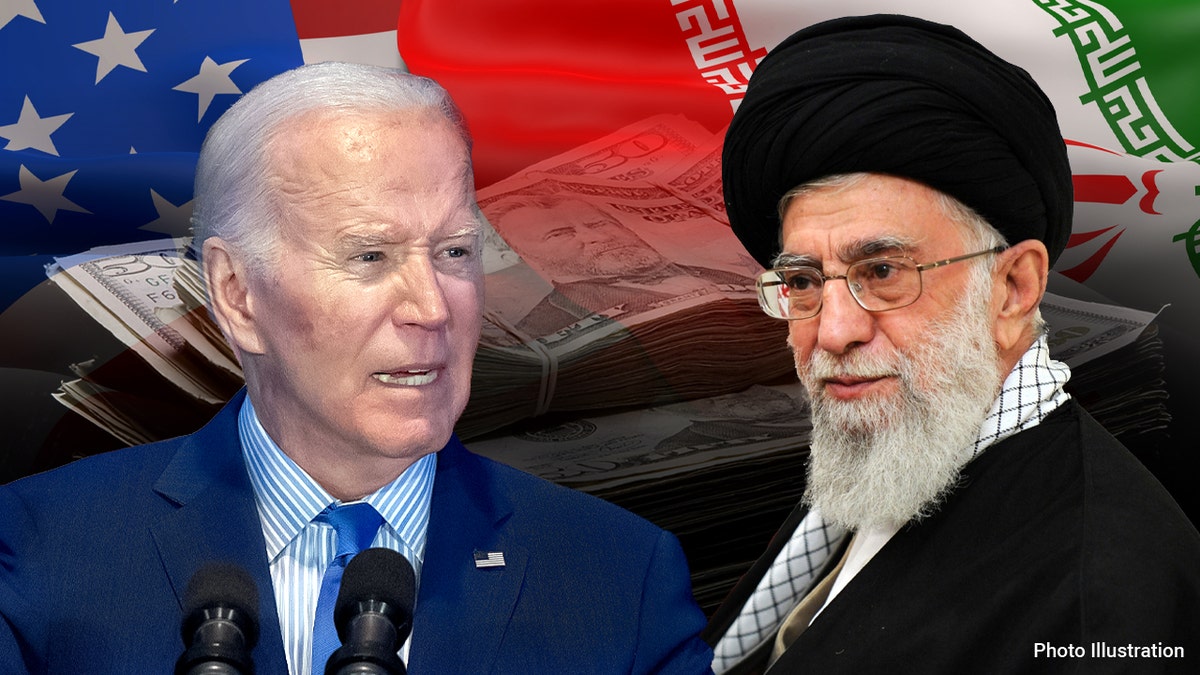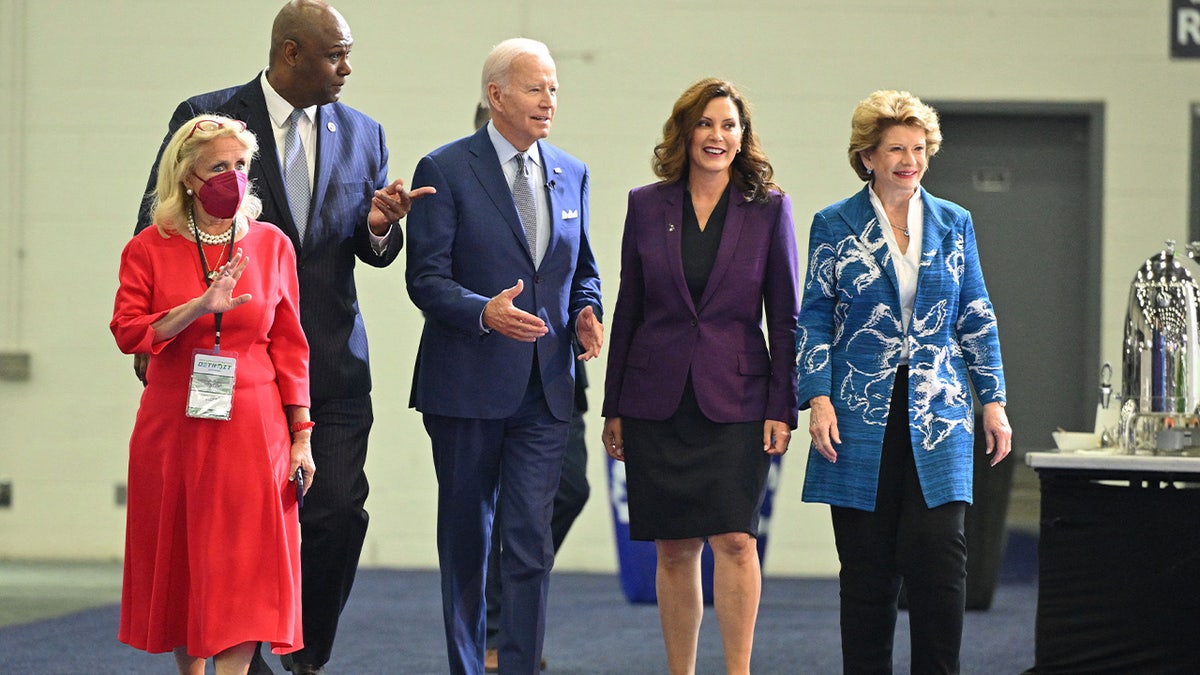Biden admin sanction waivers give Iran access to billions in funds to keep war efforts going, expert says

The Biden administration has allowed billions in sanctions waivers that benefit Iran, with estimated billions more in unsanctioned oil sales, which allows the Iranian government to continue diverting money to its drone factories and funding proxy groups, an expert told Fox News Digital.
'What happens when you end up releasing that money is that it goes into the general funds, which can then be used in lots of different ways,' Jonathan Schanzer, senior vice president for research at the Foundation for Defense of Democracies (FDD), explained.
'If they are using the sanctions relief to fund their general budget, then ultimately [they] are to the benefit of the IRGC because the IRGC partakes in that regular budget,' Schanzer said, noting the Biden administration has often argued that any waivers do not ultimately and directly benefit the Iranian military and the Islamic Revolutionary Guard Corps (IRGC).
'Let me put it this way: There is no way to do it without ultimately benefiting the regime and its ultimate objective, which is to fund its malign activities abroad,' Schanzer, a former terrorism finance analyst at the U.S. Department of the Treasury noted.
A State Department spokesperson told Fox News Digital that the Biden administration 'has not lifted a single sanction on Iran. Rather, we continue to increase pressure.'
'Our extensive sanctions on Iran remain in place, and we continue to enforce them,' the spokesperson said. 'Over the last three years, the U.S. has sanctioned over 600 individuals and entities connected to the full range of Iran’s problematic and dangerous behaviors, UAV and missile proliferation, terrorism, terrorist financing and other forms of illicit trade, horrific human rights abuses and support for proxy terrorist groups.'
'We have even seen the regime fail to meet its own revenue expectations as it struggles to evade our sanctions and find illicit buyers for its oil,' the spokesperson said, not commenting on the fact Iran does find buyers for its oil. The spokesperson insisted that the U.S. sanctions, in combination with 'Iran’s economy and regime mismanagement,' have brought the country’s currency 'to the lowest it has ever been against the U.S. dollar.'
A second State Department spokesperson reiterated the fact that the sanctions waiver allowing Iraq to buy electricity from Iran has been renewed 21 times since the Trump administration first issued the waiver in 2018 and that 'any notion' that money goes to Iran due to the waivers 'is false and misleading.'
'We have been in ongoing engagement with allies and partners, including at the G-7 and with the EU, on ways to increase pressure on Iran,' the second spokesperson said.
A Fox News Digital analysis, in combination with the FDD’s research, determined that Iran has received between $16 billion and $20 billion in sanctions waivers, with billions more gained through the sale of Iranian oil, which the U.S. has sanctioned but has not managed to totally prevent due to a mixture of lax government oversight and more sophisticated evasion methods.
That includes a $10 billion sanctions waiver so Iraq can trade to obtain electricity from Iran, a $6 billion sanctions waiver agreed for South Korea to transfer money in exchange for the release of five Americans and $3.8 billion gained through the sale of petrochemicals in order to dodge a Trump-era sanction.
The U.S. State Department in March came under fire for resuming a sanctions waiver, which had been renewed since the Trump administration first issued the waiver in 2018. Some experts estimated the waiver as having a valuation of around $10 billion for Iran.
That waiver particularly allowed for the transfer of funds between Iran and Iraq so that Iraq, which remains a U.S. ally, could continue to use electricity imported from Iran – but critics saw it merely as another easement on sanctions against Iran.
'None of this money goes to the mullahs. None of this money goes into Tehran. The sanctions relief that is provided actually goes to vendors that provide humanitarian assistance to the Iranian people,' White House national security advisor John Kirby told reporters at the time.
'Not only do the Iraqi people not suffer because of this, the Iranian people aren't going to suffer because of this,' Kirby added. 'That allows for Iraq to be able to work its way off of Iranian energy so that they can keep the lights on.'
Schanzer countered the administration’s argument by noting that 'as soon as [money] hits the system, it is going to be diverted or used in a cynical way,' even taking what humanitarian aid gets into the country through third-party vendors and reselling it to the civilian population, effectively laundering the assistance into money.
'When we talk about dual-use goods or even things that they need in order to feed their fighters things along those lines, it is a consistently cynical diversion scheme,' Schanzer said. 'Whether we're talking about Iran itself or we're talking about Iran's proxies.'
'When the administration was saying that we shouldn't be putting sanctions on the Houthis because it would ultimately block humanitarian assistance from getting into Yemen – guess what?' Schanzer continued. 'When that humanitarian assistance gets to Yemen, who benefits? The people that control the territory in question, which right now a large chunk of Yemen is controlled by the Houthis.'
The New York Times in February published the results of an investigation that determined Iran had managed to sell 'oil worth billions of dollars' thanks to 'a significant gap in U.S. oversight.' Shipping vessels owned by shell companies and using 'spoofing' methods to hide their location made dozens of trips throughout 2023 to ferry Iran’s oil under the sanctions.
The lack of a total crackdown on Iran’s oil shipments has led a significant number of experts to argue that the Biden administration may have started willfully turning a blind eye to Iran’s activities – partially since the surge in oil sales is clear and evident.
Javier Blas, a long-time energy and commodities reporter, wrote in a Bloomberg op-ed that 'the conspiracy theorist inside me says the White House has turned a blind eye to the Iranian sales because it’s more worried about inflation … not only has Iran boosted oil production, but its exports have surged even more because it’s been able to sell a large chunk of the crude it was forced to put in the past into storage, both onshore and into tankers turned into floating storage facilities.'
Iran’s growing cooperation with China also plays a significant role in how the country has managed to dodge sanctions, according to Foreign Policy, which cited a 25-year economic cooperation agreement the two countries agreed to in March 2021, as well as Iran’s decision to join the Beijing-led BRICS economic bloc, which gives Iran access to other currencies and trading options.
'There’s no question that Russia, China and others are working to provide assistance to the Iranians,' Schanzer claimed. 'We know this to be the case, but, with the Russians and Chinese, it’s often done in trade or in arms purchases, oil … if they get remuneration in rubles or in RMB (Chinese Yuan) in trade surplus where they can cash in for other products that’s not the same as dollars, and it’s not the same as some of the goods that will come through American channels.'
Fox News Digital’s Caitlin McFall contributed to this report.




